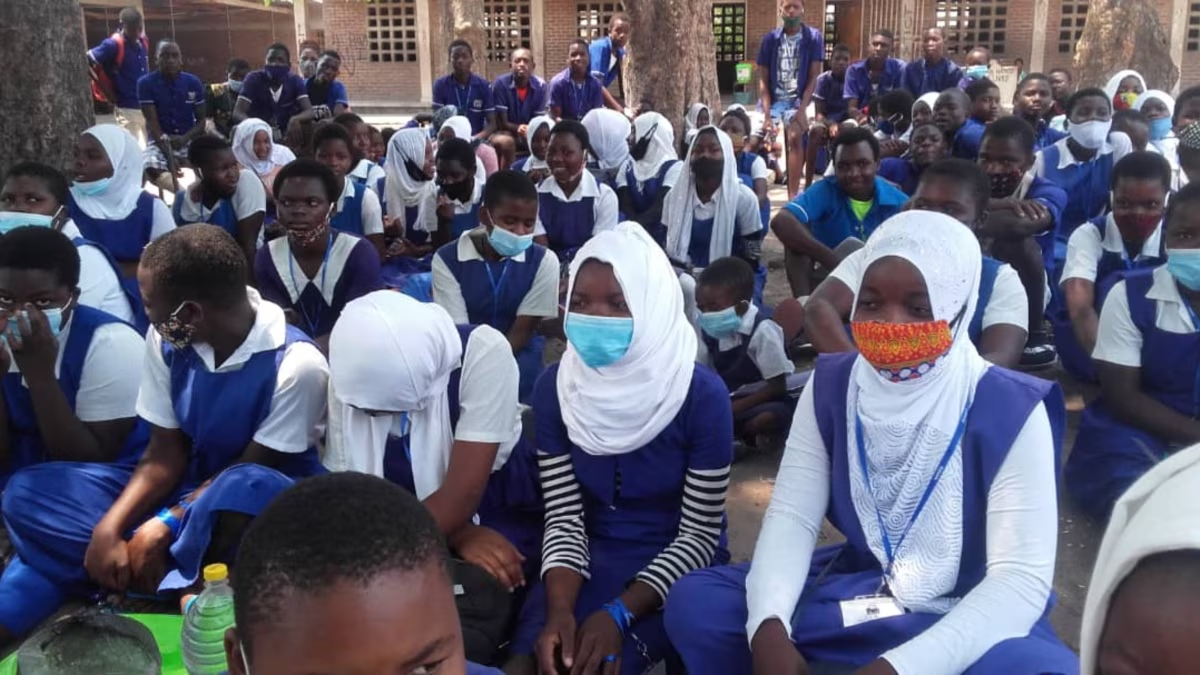
Almost 2000 tobacco tenant farmers, including hundreds of children, from Malawi are taking legal action against British American Tobacco (BAT) accusing the company of forced and child labour.
According to their lawyers, Leigh Day, the group of farmers and their family members accuse the tobacco company of unjust enrichment, namely that they made huge profits from the leaves that were picked by the farmers who were effectively forced to work for very little pay under fear, duress and false pretences and were left no option but to put their children to work on the farms too.

The child farmers carry out much the same work as the adult farmers including building ridges for planting, harvesting tobacco leaves, applications of toxic pesticides and bundling tobacco leaves.
The farmers say the work regularly prevents the children from attending school and they often work gruelling 10-12 hour days.
During the last season many tenant farmers total earnings were on average no more than £100 (about K95,000) to £200 (K190,400) for the work of a family of five for 10 months.
“While British American Tobacco amasses huge profits the farmers that do the gruelling and hazardous work of picking the tobacco leaves are paid little to nothing.
“They are trapped into working for the season with no means of removing themselves and their families from their situation having been enticed to the farms with promises of decent wages and pleasant living conditions,” said Oliver Holland, solicitor at law firm Leigh Day, representing the tenant farmers.
Holland added that the decision farmers are forced to make to put their children to work is heart-breaking.
Leigh Day have since sent a pre-action letter to British American Tobacco (BAT) and if no satisfactory response is received to the letter the case will be issued in the High Court in London, as British American Tobacco is a British-headquartered company.
“It is time that multinational corporations that make money from exploited workers are held to account,” said Holland.
The tenant farmers and their families in Malawi live on tobacco farms ten months a year picking the leaves.
The tenant farmers work on land owned by contract farmers who enter into contracts with leaf buyers for the sale of tobacco grown on their land. They then bring in the tenant farmers to fulfil those contracts on their behalf. The leaf buyers sell on the leaves to multinational cigarette manufacturers, including BAT, who effectively set the prices paid for the tobacco leaves.
A typical tenant farmer grows and harvests tobacco on around one hectare of land. An average of four workers are needed for a farm this size. However, the amount the tenant farmers are paid for their crop is too low for them to be able to afford to employ workers to help on the farms. As a result, they have no option but to rely on their children to work on the farms.
The amounts paid at the end of the season are normally very significantly less than what the tenants farmers were promised and sometime paid nothing at all after deductions for loans and interest.
Many of the farmers are induced to travel from their homes in southern Malawi to the farms in the north under false pretences.
They are often deceived about what work they will be doing, the working and living conditions, and the amount they will be paid. Contract farmers often provide loans to the tenant farmers with excessive interest rates that effectively leave them in debt-bondage.
The tenant farmers are not provided with any protective equipment for the work and many suffer injuries and illness included Green Tobacco Sickness.
Many have been threatened with physical violence and financial penalties if they try to leave the farms and they are all heavily dependent on the contract farmers for food, household products and money throughout the season.
BAT is the largest publicly traded tobacco company in the world and acquires tobacco from between 20,000 to 35,000 farms in Malawi.














